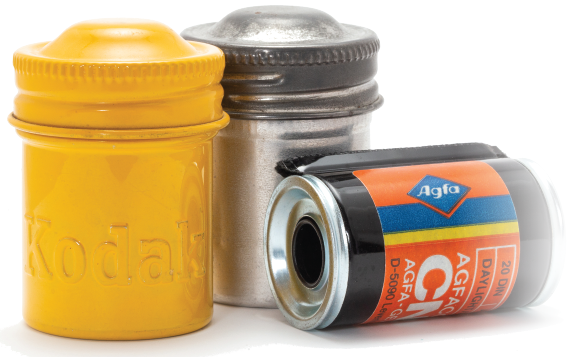You may be wondering why you are reading about how to vote so early in the year. But that’s exactly the point: It isn’t too early.
Actually, Americans have been voting by mail since the American Revolution. Absentee ballots did not become widespread in the military, however, until the Civil War. In 1864, Abraham Lincoln insisted on allowing 150,000 Union soldiers to cast a vote by mail.16 This right was codified by the 1986 Uniformed and Overseas Citizens Absentee Voting Act, which allows expatriate U.S. citizens and members of the military to vote absentee in elections for federal office.17 Ironically, a soldier in Afghanistan may have an easier time casting a ballot in the next election than many of your neighbors.
Why Vote?

Kike Mateos / shutterstock.com
There is an apocryphal story about two economists meeting at a polling place. “Why are you here?” the first economist asks the second.
“Because my husband forced me to come. Why are you here?” the second economist asks.
“Because of my wife,” the first economist says, nodding in commiseration.
“Let’s not tell anyone we saw each other here,” says the second economist. The first economist nods in agreement, and they walk off in different directions.18
I am told that if you were an economist, you would be rolling in the aisles. The punchline is that the economists were embarrassed to be seen casting a vote because, statistically, it is a waste of time. Close elections definitely occur, but more frequently than not, a single ballot will not change the outcome of the vote. So why bother voting at all?
We often think of elections as a way of holding elected officials accountable for their actions. That said, elections often reflect issues that have nothing to do with the person being elected. Additional issues at play include the following:19
- Oversensitivity: Elections turnout is heavily influenced by issues that have no direct connection to the candidates, such as the weather or a pandemic.
- Limited agency: Who you vote for has a lot to do with social pressures, even when no one will know how you cast your vote. One result is party allegiances that can be difficult to shake.
- Limited cognition: Who you vote for has to do with your gut instinct. Because the issues examined in any given election can be overwhelming, we use cognitive shortcuts when determining who to support. Campaign slogans are a good example of this; no one really thinks foreign policy will be constructed around a five-word phrase on a bumper sticker, but we accept this fiction to help get our bearings on the issues.
Elections may also have limited value in expressing the will of the people. A given candidate may receive a given vote for myriad reasons, and although many of these reasons will overlap, many will not. Elections may represent a zeitgeist, but taking away specific mandates from any particular election may be challenging.
Interestingly, many people vote, specifically, because they want to be seen voting. Some studies indicate that although mail-in ballots make voting easier, they don’t always lead to an increase in the total number of votes cast.20 Some people vote because they appreciate the ritual, and possibly as important, they want their neighbors to witness them in this act of civic duty.
I can appreciate the truth to this observation. When I cast my vote, I frequently take the “I Voted” sticker I receive, and attach it to the front of my laptop, so everyone can see that I am a good citizen. On Election Day, a common topic of conversation is the contortions we go through to find time to cast a vote. We are not shy about our participation; we want people to know, and the lack of a public spectacle, perhaps, makes the entire act less appealing.
The main reason you should cast your vote, however, is to create a citizenship habit. Knowing we plan to vote encourages us to pay more attention, to have an opinion, to become involved. Voting is the gateway to increased civic participation. Also, voting—even in elections in which the conclusion seems foregone—is how we communicate to our elected officials that we are paying attention.
Politicians of all stripes pander to the extremes because they know those are the citizens most likely to cast a vote. Utah Sen. Mitt Romney recently commented that the people who are eager to respond to pollsters are often more reluctant to drive to the polls.21 This expectation needs to change.
The ACR’s Government Affairs Committee has been trying to communicate this message to us for years. Physicians are notoriously bad at standing up for our own interests. The unsung hero of the ACR is RheumPAC, “the ACR’s nonpartisan political action committee (PAC) that works to elect and support candidates who are pro-rheumatology. It is the only PAC dedicated to the interests of the rheumatology profession.” RheumPAC makes sure we have a seat at the table and that our concerns are heard. And it does this while receiving support from only a small percentage of all U.S. members. Imagine how much good RheumPAC could do, and how much influence rheumatology might have, if we could push that percentage up.
Also, your vote does make a difference, even if that difference is not immediately obvious. In the case of the Virginia House of Delegates, the decision of the three-judge panel not only affected the results of a single election, it had an impact on the legislative branch of the Commonwealth of Virginia. When Mr. Yancey was deemed to have won his election—by dint of a film canister—he provided his party with the majority it needed to retain control over the state legislature. That is, until 2019, when, energized by the coin-toss election, Ms. Simonds’ supporters carried her, and her party, to a landslide victory.
Your vote matters. Register. Vote.
